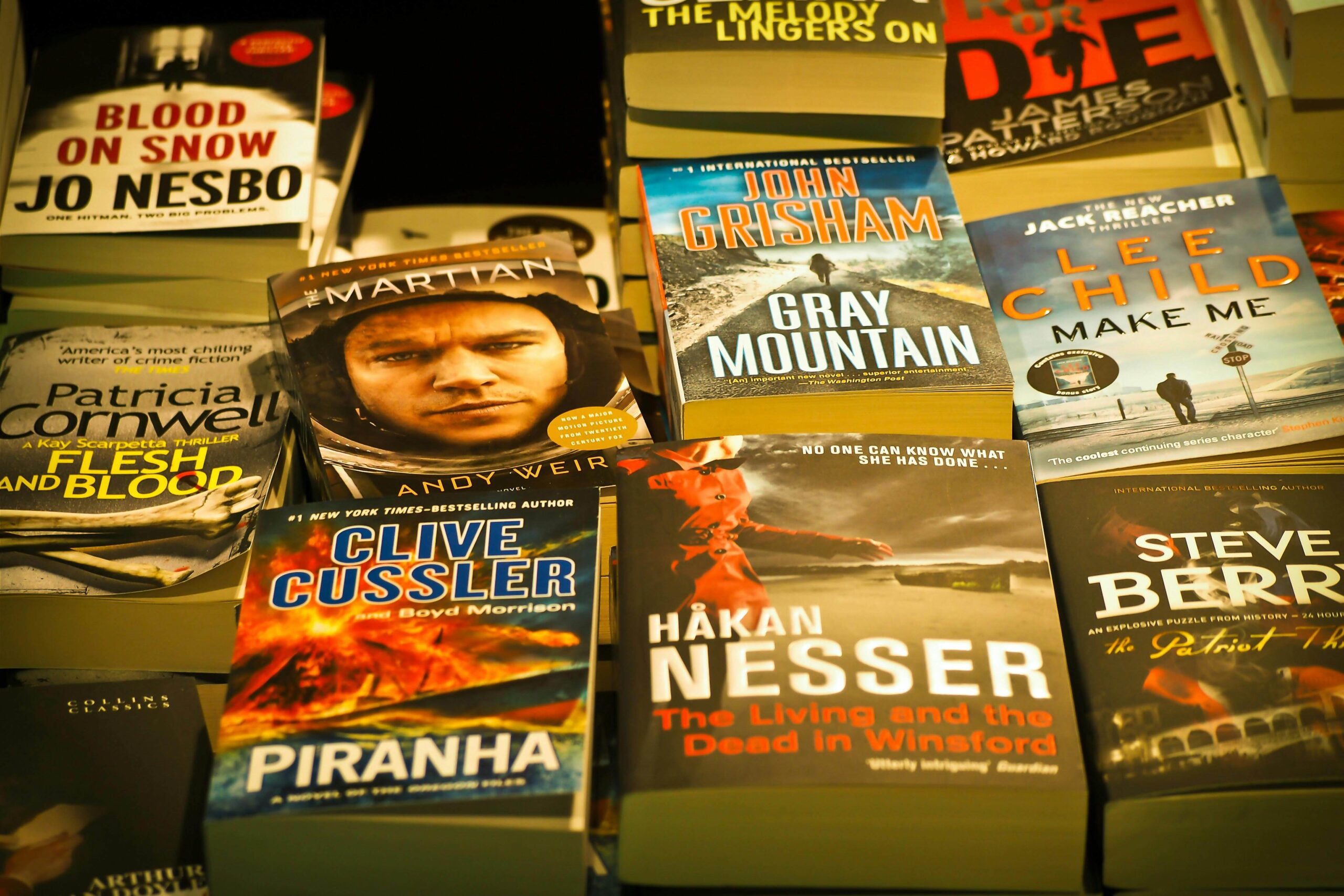
You’ve written your book. You poured your heart into it, maybe stayed up too many late nights editing, tweaking chapters, and hitting “refresh” on your KDP dashboard. Eventually, you took the leap and self-published it on Amazon. You probably sold a few hundred copies—maybe more if you hustled on social media, ran some ads, or bribed your friends and family with coffee and cookies.
Now you’re thinking, “I’ve proven I can do this. Why not pitch it to a literary agent and finally get the traditional deal—bookstores, movie rights, the whole nine yards?”
But here’s the part no one really prepares you for: most agents won’t even glance at a self-published book. Not out of snobbery, not even because your story isn’t good, but because of how the publishing world is wired behind the scenes.
I know it feels like a gut punch. Trust me, I’ve been there. When I first self-published, I had stars in my eyes. I thought a powerful plot, strong characters, and some decent reviews would be enough to catch an agent’s attention. I imagined someone opening my email, reading the first few pages, and saying, “We’ve got the next bestseller right here!”
Instead, I got silence. Or worse, form rejections that felt like they hadn’t even skimmed the sample.
But that experience taught me something important: agents aren’t just looking for good writing—they’re looking for market-ready products they can confidently pitch to publishers. And most self-published books, even great ones, just don’t check all those boxes.
It took some brutally honest feedback and a good dose of reality check to understand the logic behind their decisions. And once I saw the industry from their perspective, things started making a lot more sense.
Let’s pull back the curtain and take a look at why self-publishing doesn’t always open the doors you expect—and why that may be starting to change.
Agents Work on Commission—And They Need to Sell a Product That’s “New”
Literary agents are salespeople first, book lovers second. Yes, they adore stories and champion authors—but at the end of the day, they only get paid when they sell your book to a publisher. No sale, no paycheck.
So when an agent reads your query, they’re not just asking, “Is this well written?” They’re thinking, “Can I sell this in a competitive market to a publisher who wants something fresh, exciting, and profitable?”
And this is where it gets tricky for self-published authors. Once you’ve released your book on Amazon, Kobo, or anywhere online—even if only a few people have bought it—it’s no longer a “new” product.
In the eyes of the industry, the market has already had a chance to decide what it thinks. And if your book didn’t sell thousands of copies or make any noticeable waves, well… that speaks louder than the writing itself.
I learned this the awkward way. I once sent a query for a self-published novel I had spent two years lovingly crafting. It had maybe 350 sales on Kindle and a handful of nice reviews. I thought the story had heart. But one of the few agents who responded wrote something I’ll never forget:
Low sales don’t mean you’re a bad writer—but they do mean you’ve got an uphill climb if you want someone else to take a risk on your book.
“If a book has already gone to market and the response was lukewarm, it’s extremely difficult for me to pitch it as a new opportunity.”
That hit hard. But it made sense. Agents don’t want to walk into a publisher’s office and try to sell a book that’s already out in the wild with little traction. It’s like trying to sell a used iPhone in an Apple Store. Even if you’ve kept it in a case and polished it every day, the fact that it’s been opened, used, and returned to the shelf makes it a tougher sell.
In fact, in a 2023 survey by publishing expert Jane Friedman, 83% of literary agents admitted they don’t seriously consider self-published books—unless there’s something truly extraordinary backing them: tens of thousands of copies sold, a massive social media following, viral media coverage, or a totally untapped hook.
And from a publisher’s standpoint, the logic is cold but fair. If they hear, “This book is already out,” the marketing team’s first question is, “Then why didn’t it catch fire the first time?” They don’t want to relaunch a product that already flopped, even if the writing is brilliant.
So yes, agents want great stories—but they also want market potential they can pitch with confidence. And unfortunately, a book that’s already been released (and didn’t soar) makes that job much harder.
Low Sales Speak Louder Than Good Writing
Let’s not sugarcoat it—most self-published books don’t sell well. And no, it’s not always because they’re badly written. In fact, some of the most moving, well-crafted stories I’ve read never made it past a couple hundred sales. Often, it comes down to one simple problem: visibility.
You can pour your heart into a story, spend months revising, hire a professional editor, design a stunning cover, and hit that publish button with all the hope in the world—only to hear crickets. Not because your story isn’t worth reading, but because no one knows it exists.

But from a business standpoint, the industry doesn’t care why it didn’t sell. Numbers talk. Publishers and agents look at your sales history like a credit report. Low sales? That’s a red flag. They don’t dig into the “why.” They just see a product that entered the market and failed to catch fire.
According to Publishers Weekly, most of the big traditional houses won’t even look twice at a self-published book unless it’s sold at least 10,000 copies. That’s their bare minimum to even consider the conversation. Anything less, and they assume the market isn’t there, or worse, that the book already peaked.
I learned this the hard way. I had a fantasy novel I’d spent nearly two years on. It wasn’t a side project—it was the project. I did everything right (or so I thought): professional editing, an amazing custom cover, beta readers, a modest launch plan.
I released it, pushed it on every social channel I had, and managed to sell around 300 copies that first year. And honestly? I was proud of that.
But then I queried a few agents. One of them, in a rare moment of candor, replied and said, “If the market didn’t respond to it already, I’d have a hard time convincing an editor to take another shot.”
That stung. Like, deeply. It felt like someone telling me my dream had an expiration date stamped on it the moment I hit publish.
It wasn’t about the quality of the story, the passion I’d poured into the characters, or the countless late nights I spent revising one paragraph a hundred different ways. It was about the cold, hard truth: only 300 people bought it.
And that’s the mindset you’re up against when approaching agents with a self-published book. It’s not fair, but it’s real. They’re not judging your soul. They’re judging your sales data.
The silver lining? That painful moment pushed me to understand the publishing world from the inside out. I stopped expecting my book to sell itself and started studying how books actually sell. I learned what agents really look for—and what makes publishers take notice.
Low sales don’t mean you’re a bad writer. But they do mean you’ve got an uphill climb if you want someone else to take a risk on your book. And in traditional publishing, that risk always comes with a price tag.
Rights and Control Are a Headache for Publishers
This one hit me like a brick wall when I first started querying. I thought having my book out there—with a snazzy cover, a catchy title, and polished formatting—would make it more attractive to agents. “Look,” I thought, “I’ve already done half the work!” But that’s exactly the problem.
When you self-publish, you’ve already made creative decisions—the title, the cover art, the blurb, the interior layout, even the pricing strategy. That might feel empowering as an author (and it is!), but for a traditional publisher, it’s a red flag.
They want the freedom to rebrand your book however they see fit. That might mean changing the title completely, hiring a new cover designer, or even restructuring the manuscript to better suit their target audience.
And here’s the kicker: if you’ve already released the book on Amazon—especially through programs like KDP Select, which requires exclusivity for ebooks—it’s like the rights are tangled in red tape.
Add in audiobooks, translations, or even just one-time promotional deals, and suddenly your book’s legal landscape becomes a maze. For a publisher, that’s just too much paperwork for a product they didn’t even launch themselves.
Think of it this way: publishers aren’t just buying your book—they’re buying the opportunity to shape, market, and distribute it their way.
If you’ve already given it to the world, with your own vision, it’s like trying to sell a house that’s already been fully decorated and rented out. They don’t want to rip up old flooring or repaint the walls—they’d rather build their own dream house from the ground up.
So while your self-published book may be your pride and joy (and rightly so), to a publisher, it might feel more like a fixer-upper in a market that’s already seen the listing.
The “First Impression” Problem
Many agents—fair or not—assume that self-published books lack polish. And let’s be honest here, a lot of them do. I’ve seen my fair share of indie titles with covers that look like they were made in Microsoft Paint, typos on page one, and formatting that jumps all over the place.
No judgment—we’ve all been there. Self-publishing is hard. You’re wearing all the hats: writer, editor, designer, marketer, distributor. It’s easy to miss things when you’re juggling everything on your own, especially if you’re on a tight budget or learning as you go.
But here’s the kicker: because so many poorly edited and rushed books flood the market every single day, they create a kind of invisible stain on all self-published work.
When you self-publish smart, build a loyal readership, and treat your writing like a business, the gatekeepers start to take you seriously.
It’s not fair, but it’s real. You could spend months polishing your prose, hire a professional cover designer, run your manuscript through multiple rounds of editing—and still get tossed aside by agents who take one glance and assume, “Indie = amateur.”
I remember standing at a writer’s conference once, nervously pitching my self-published novel to a well-known agent. I had done everything right—clean formatting, professional edit, a solid cover.
But before I could even finish describing the plot, the agent cut in and said, “Is this already published? Oh… yeah, we usually don’t take those.”
That was it. One sentence. No feedback, no curiosity, just a polite smile and a new conversation with the next writer in line. Brutal.
Later that day, another agent was a bit more honest. Over coffee, she told me, “We’re overwhelmed with submissions. If something looks self-published, we assume it hasn’t gone through enough of a vetting process to be worth our time.”
Ouch, right? But it stuck with me—not as an insult, but as insight into how this industry works.
They’re not trying to be cruel. They’re just drowning in manuscripts and looking for the cleanest, clearest path to a sellable product. For them, self-publishing isn’t a red flag because of the author—it’s a shortcut for eliminating risk.
And that’s the reality we have to navigate.
Publishers Don’t Want to “Relaunch” What’s Already Out
Here’s the unvarnished truth: traditional publishing is built around the launch. That magical first moment when a book hits shelves—real or digital—and gets its chance to make a splash. We’re talking advanced review copies sent to media months ahead, PR campaigns carefully planned, author interviews lined up, strategic bookstore placements, and marketing dollars ready to roll. That launch window? It’s everything.
Now imagine walking into a publisher’s office with a book that’s already lived its life on Amazon. Maybe you published it two years ago. Maybe you even got a few five-star reviews.
But from a publisher’s perspective, that book is no longer “new.” It’s already been read. Already been rated. Maybe it’s already gathered dust in some online corner where the algorithm stopped caring.

It’s like bringing day-old bread into a bakery that prides itself on selling only fresh-baked loaves. Even if it tastes great, the moment it’s labeled “not fresh,” it loses its value in their eyes.
I had an editor once tell me point blank, “We’re not in the business of re-launching something that’s already had its shot. We’re here to create excitement. Not try to recreate it.”
And that stings when you’ve poured your heart into a book. I’ve been there—watching sales crawl while dreaming of a second chance with a traditional publisher.
But in this industry, timing and momentum are everything. The first impression isn’t just important—it’s the only impression that matters in the eyes of many gatekeepers.
It’s not that they think your book is bad. It’s that they believe it already had its chance—and if it didn’t break through the noise the first time, why would it now?
But Here’s the Twist: There Are Exceptions
Yes, most agents will pass on self-published books without blinking—but not all of them. And definitely not all the time.
If your book has:
Sold over 10,000 to 20,000 copies (and not just to your friends and family)
Gone viral on TikTok, Instagram, or YouTube, with readers begging for sequels in the comments
Been featured by major media outlets like The New York Times, NPR, or Good Morning America
Or won awards that actually mean something in the industry
…then you’re no longer just a self-published author trying to get noticed. You’re a proven asset with data to back you up.
When you reach that level, agents stop asking if you’re worth the risk and start wondering how fast they can get you on a call.
Let’s look at Andy Weir, the guy behind The Martian. He originally gave his chapters away for free on his website. Readers asked for an ebook, so he tossed it on Amazon for 99 cents. That was 2011. The book blew up fast. Within months, a literary agent reached out.
Soon after, Crown Publishing picked it up, and not long after that, Hollywood turned it into a blockbuster with Matt Damon.
Weir didn’t chase agents. They came knocking because the numbers, buzz, and timing were too good to ignore.
Same with Hugh Howey. He started Wool as a short story—just something he put out for fun. But readers went wild. He expanded it into a series, and sales exploded. Before long, he landed a six-figure deal with Simon & Schuster.
But here’s the kicker: he kept the digital rights. That almost never happens in traditional publishing. But when you’re holding a winning hand, you don’t fold—you negotiate.
These stories are strategic case studies. They show that self-publishing can absolutely open doors to traditional publishing, if you bring something to the table that publishers crave: an audience, momentum, and proof of concept.
Now, I won’t lie—these cases are the exception, not the norm. But they prove a critical point: when you self-publish smart, build a loyal readership, and treat your writing like a business, the gatekeepers start to take you seriously.
I’ve even seen it happen in my own circle. A friend of mine, who writes cozy mysteries, slowly built up her readership over a few years. Nothing explosive—no viral video, no six-figure month. But she kept publishing, kept engaging with her audience, and built a strong backlist.
Because so many poorly edited books flood the market, they create an invisible stain on all self-published work.
Eventually, an agent reached out after seeing her sales on a Facebook author forum. That led to a small traditional deal—and now she’s on her way to bigger things. No gimmicks. Just consistency and proof that readers want more.
So, yes, agents usually pass on self-published books. But the smart ones? They keep one eye on the indie world, watching for the next big thing you might be quietly building.
What You Can Do Instead
If you’re a self-published author hoping to get an agent, here’s the honest truth: the smartest move you can make is to write a brand-new book and query with that.
I know, I know. You already poured your heart into your first book. You stayed up late tweaking every chapter, paid out of pocket for cover design, figured out how to upload to Amazon without breaking your laptop—and now someone’s telling you to start over?
Yep. And here’s why it’s not as soul-crushing as it sounds.
When you self-publish, you go through the entire creative process—writing, editing, packaging, marketing. You learn where your writing shines and where it drags.
You find out what readers love, what they skip, what makes them click “Buy Now,” and what makes them forget you. That experience is gold.
So take everything you’ve learned—the rhythm of pacing, the sharpness of dialogue, how to write irresistible blurbs—and pour it into a fresh manuscript. One that’s not tied to an ISBN, isn’t floating around on Goodreads with three random reviews, and hasn’t already been judged by the market.
Agents love fresh starts. A clean manuscript gives them full freedom to pitch your work as a debut, which is still one of the most sellable things in the industry.
And while you’re working on that new book, start laying the groundwork for your author platform. I’m not saying you have to become a TikTok celebrity overnight (though if you do, congrats—you might not even need an agent). But you do need a presence.
Grow your email list, even if it’s just 20 loyal readers. Start a blog, a podcast, a newsletter—something that lets people hear your voice and know your name. Don’t think of it as “marketing.” Think of it as building a bridge between your stories and the people who need them.
A literary agent once told me, “If a writer has 5,000 email subscribers or an active social following, I pay attention—because that means there’s already an audience eager for what they write next.”
So, no, it’s not about deleting your self-published past. It’s about using it as your training ground—and proving you’ve got more stories to tell, better than ever.
Here’s the Good News: Times Are Changing
The stigma around self-publishing is fading. Not overnight, but noticeably. What used to be seen as the “last resort” for writers is now being recognized for what it really is: proof that you’re willing to bet on yourself.

More and more literary agents are starting to see indie authors as more than just hopefuls with a Word doc and a dream.
They see scrappy, self-driven entrepreneurs—writers who’ve learned how to build email lists, run Facebook ads, launch their own covers, and connect directly with readers. That’s not just storytelling—that’s small business ownership. And publishers are paying attention.
TikTok, particularly #BookTok, has flipped the script. There are debut indie authors who woke up to six figures in sales because a single reader posted a raving 30-second video. When that happens, agents don’t just take notice—they reach out.
Sometimes, they’re not even pitching you the usual “we’ll shop your book” offer. They’re asking what else you’ve got in the works. They want in on your next move.
Even big players like HarperCollins, Simon & Schuster, and Penguin Random House are watching. Especially in genres like romance, fantasy, thriller, and contemporary YA, where trends move fast and readers are fiercely loyal, editors are now browsing Kindle Unlimited charts like talent scouts at an indie film festival.
I’ve seen this happen up close. One of my self-published friends—an author who used to feel invisible in the sea of Amazon listings—landed a deal with a mid-size publisher this year. And no, she wasn’t raking in millions.
But her series had that spark: bingeable writing, engaged readers, and real sales momentum. When the editor reached out, they said something that stuck with me: “We’re looking for authors who’ve already done the work. And you’ve done it.”
So no—the door isn’t shut. It’s just not the same door it used to be. You’re not knocking and waiting for permission anymore. You’re building proof, step by step, that you’re worth betting on.
And when that door does open, it won’t feel like you’re squeezing in. It’ll feel like you were always meant to be there. Because you didn’t wait for a seat—you’ve been building the whole damn table.




